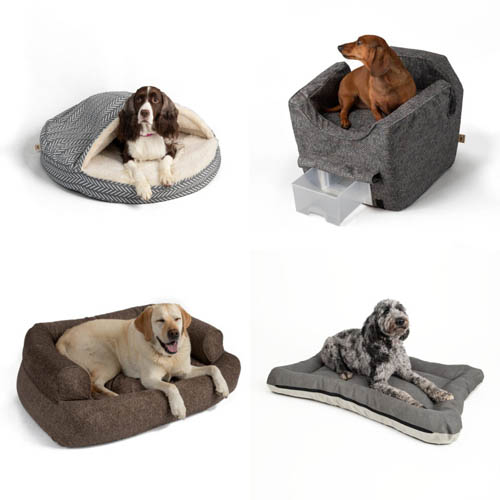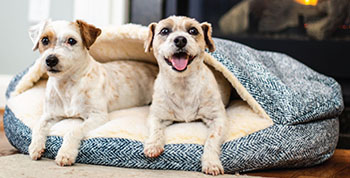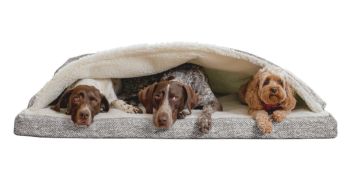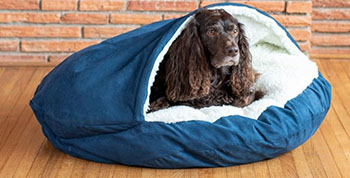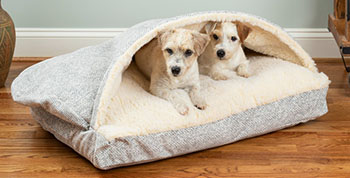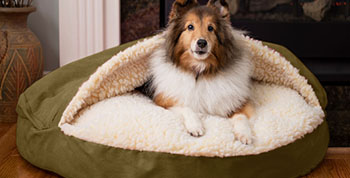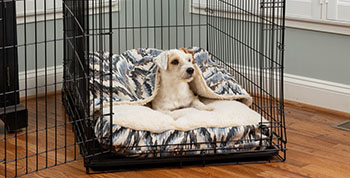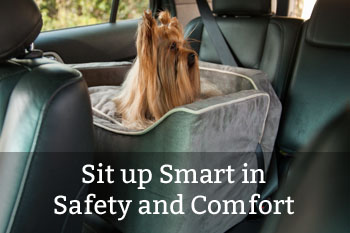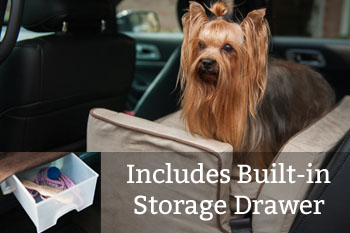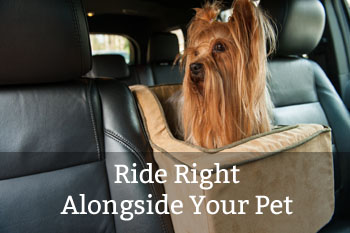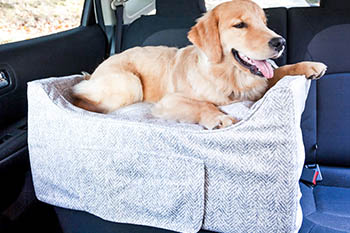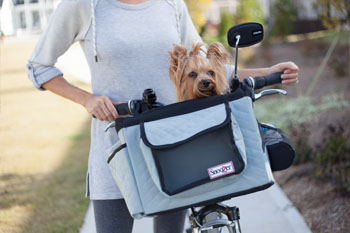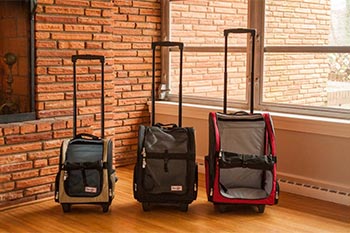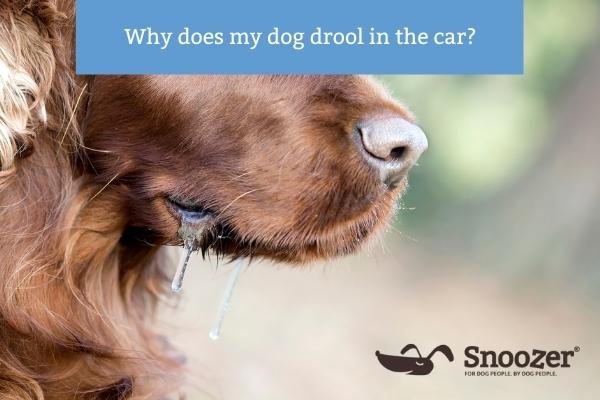Why does my dog drool in the car?
Do you dread car trips with your dog because they drool so much? Dogs drool for many reasons – some of them physiological, some of them psychological – but the good news is that if your dog has a car-specific drooling issue, it can be addressed. Here are possible reasons your dog drools in the car and what to do about it.
Dogs drool from motion sickness
Excessive drooling is one common sign of motion sickness in dogs. Other signs include licking or smacking lips, whining, pacing, vomiting, and diarrhea.
Motion sickness is quite common in puppies and younger dogs and often disappears by the age of 1. It’s believed this is because younger dogs’ inner ears, which are responsible for balance, are still developing. So if your young pup seems to have motion sickness, the problem could go away on its own as they grow up without intervention from you.
But if you want to lessen your puppy’s suffering in the meantime, or if your older dog continues to show signs of motion sickness, talk to your vet about medications or natural remedies to try to reduce their discomfort in the car. There are both over-the-counter and prescription drugs that are extremely effective, or if you want go to the all-natural route then you can try aromatherapy, pressure point massage, or drug-free supplements.
Dogs drool when they’re anxious
Perhaps your dog isn’t suffering from motion sickness, but simply dislikes traveling in the car. The anxiety over car rides can manifest in drooling, pacing, whining, barking, and other signs of agitation, and it can be easy to mistake these for motion sickness. (Though bear in mind that dogs can experience both motion sickness and anxiety at the same time.)
If you think your dog has travel-related anxiety, you can address it with patience and persistence. Making sure your dog is always securely attached when they’re in the car, whether in a crate, by a harness to the seatbelt, or in a dedicated dog car seat, is the first step to help reduce anxiety (and is safer for them and for you, too).
What if your dog associates the car with negative experiences? Maybe you only ever get in the car to go to the vet for shots, or to drop your dog off with someone else. If this is the case, break this association by going for just as many car trips to destinations that are fun for your dog, like a dog park or the beach for a nice long walk. Over time, your dog will learn that a ride in the car isn’t something to be anxious about.
Dogs drool when they have heatstroke
Heatstroke occurs when the body overheats. When not addressed in time, heatstroke can lead to permanent damage in the muscles, brain, heart, and other organs, or death. A dog in a hot car can quickly overheat and succumb to heatstroke.
Excessive drooling is one sign of heatstroke in dogs. Other signs include fast and heavy panting, fast heartbeat, whining, agitation, lethargy, glassy eyes, and dark gums or tongue. If you think your dog is overheating, get to a vet right away, and in the meantime cool them down by removing them from the hot car, offering cold water, and putting cool, wet washcloths or towels on them (especially on the belly, neck, and groin area where there’s less fur), or placing them in a tub of cool water.
Never, ever leave a dog alone in the car on a warm or hot day, even with the windows cracked. The inside can quickly become roasting hot. On a lovely 75 F day, it takes just 20 minutes for the inside of the car to reach 104 F, which is too hot for dogs. Be aware that not only is this dangerous for your dog, but it’s actually against the law in many states to leave your dog alone in a hot car, even if they’re ultimately unharmed.
Other reasons dogs drool
Dogs drool when they have dental and medical problems
Dogs drool for a variety of dental and medical reasons, including some of these more common ones: a broken tooth or other dental problem; infection, injury, or abnormal growth(s) in the mouth; allergies; gastrointestinal upset; and liver and kidney diseases. If one of these issues is the cause of your dog’s drooling, then you’ll notice that your dog drools both in and out of the car.
Other serious conditions require immediate medical attention. Poisoning, gastric torsion, and rabies can all cause excessive drooling in dogs, and all three may be accompanied by foaming or frothing at the mouth. Go to the emergency vet without delay if you see these signs.
Dogs drool when they smell something interesting
Just as you might start to drool at the aroma of a delicious meal wafting from the kitchen, dogs drool when they encounter something that smells tasty, or if they know they’re soon going to eat something tasty. (Just think of Pavlov’s dogs.) Does your dog tend to drool in the car when you’re taking home a hot pizza or bucket of chicken for dinner? Or do they always seem to drool on the ride home after doggy day care, when your dog knows that dinner is coming soon? That could be the reason.
Dogs drool because it’s in the breed
Finally, some dog breeds are just drool-y; for people who love these breeds, that’s just part of their charm! Jowly breeds like the Dogue de Bordeaux, Saint Bernard, Newfoundland, Bloodhound, Great Danes, and various kinds of mastiffs are all known to be big droolers.
Addressing the drool
Excessive drool can be messy and unpleasant, but unless your have a drool-prone breed, you do something about it. Pay attention to your dog’s other signs and symptoms to figure out what the issue is, then take steps to address and reduce the drool. Not only will it save your car’s interior, it will also make for a more pleasant time in the car for you and your dog!

